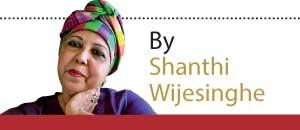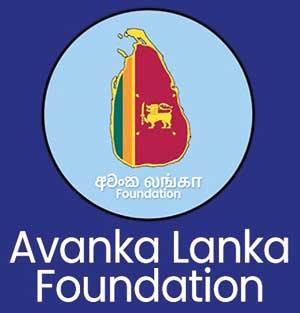10 May 2021 - {{hitsCtrl.values.hits}}

My initial brush with Dr. Tara de Mel, Former Secretary, Ministry of Education & Vice Chairperson, National Education Commission, Co-founder Education Forum Sri Lanka, was brief and inconsequential to her. I cannot recall how I managed to get a foot in the door, but I did!
inconsequential to her. I cannot recall how I managed to get a foot in the door, but I did!
Not surprising, when one is appointed Advisor to the President (Her Excellency, Mrs. CBK) Social Infrastructure, with the primary responsibilities of education and health sector reforms. She served as the Vice Chairperson (Policy) in the National Education Commission and as the Secretary to the Ministry of Education and Higher Education, steering the work of three Presidential Task Forces on General Education, University Education and Tertiary & Vocational Education.
I met up with her once more and we fizzled out since then…until quite recently when I signed up for a zoom session on MINDFUL EDUCATORS (ME). She was a refreshing change from the mighty government official! As pleased as punch would fit my frame of mind. In her words she prefers her present role to be ‘under the radar’ and what mighty work is on the cards !
|
Dr. Tara de Mel |
 Q How can Sri Lanka progress if her women and children are not protected at their most vulnerable times? For example, a wife and children live with an abusive husband/father. As a nation, are we sufficiently socially educated to understand the situation and provide solace to them ?
Q How can Sri Lanka progress if her women and children are not protected at their most vulnerable times? For example, a wife and children live with an abusive husband/father. As a nation, are we sufficiently socially educated to understand the situation and provide solace to them ?
No, we are not sufficiently empowered or ’socially educated’ to protect vulnerable groups. Starting with the school, teachers and all educators, should do their best to empower students so that they develop creative and inquiring minds, with ability for reasoning and logical thinking with analysis, s o that eventually they become self-reliant from their very young days. A system which discourages independence, questioning and creativity, and focuses on rote learning with a top-down approach, only hampers such development and stifles self-reliance.
Q Can a teacher of ANY school in Sri Lanka provide guidance to a child who suspects abuse?
Of course, yes…provided children are made aware of these situations very early, and are taught to detect suspicious situations, and to alert parents and teachers. Inclusion of sexual and reproductive health education into the curriculum in an age-appropriate manner, as it is done in countries with commendable education systems, would also help prevent abusive situations.
Finally, the Ministry of Education should amend and strengthen existing Circulars re-iterating its policy on zero-tolerance towards child abuse, and similarly action against perpetrators should be taken promptly, as per the existing laws.
The tasks initially carried out by the NCPA were progressive to a point.
Q Is ME using such organizations to provide extended awareness and knowledge as an inclusive arm?
Yes, we would definitely. As a gentle reminder, the NCPA was a key recommendation of the Presidential Task Force on Prevention of Child Abuse back in 1998-2000. And we still work with some of its original members.
Q Since the Independence of Sri Lanka, where did a majority of teachers or those in the field of education, lose their direction from selfless vocation to indifference?
I hold a contrary view. In fact, I feel the majority of our educators are genuine in imparting a good education to children, and that they believe in values like empathy and kindness. Of the 250,000 teacher cadre, most are parents as well, and they too understand what’s needed to mould the formative minds of young children. Teachers in our country are poorly paid, they have meagre resources for comfortable accommodation, transportation and lack meaningful welfare. Some schools in the country don’t even have water-on-tap or optimal sanitary facilities, and this directly impacts female teachers, who are the majority. BUT despite all of this, our teachers do a yeoman’s service, I believe.
Q Has mindful educators been a plus point to teachers or is it an uphill climb for them?
Mindful Educators Sri Lanka (ME) is still a very young entity, less than one year old. We comprise a team of experienced educators who believe in imparting values in education. Through our efforts we intend to share critical traits like kindness, empathy, integrity, non-discriminatory practices and non-sectarianism based on a foundation of mindfulnessso that educators, in turn, can incorporate these traits into classroom teaching. We at ME are not endowed with funding or similar resources, and therefore, except for few initial face-to-face teaching sessions with primary teachers from the western provinceso far we’ve been using web-based and online teaching only. Hopefully this situation will gradually change, particularly after the Covid crisis lessens.
Q What do you visualize through MINDFUL EDUCATORS?
Eventually, we intend expanding out-reach so that, by using material in Sinhala and Tamil (in addition to English) we would reach all teachers in all nine provinces. They will understand how mindfulness-based- initiatives (MBI) can be used as a foundation to inculcate important values into education, in a sustainable manner. These practices need to be integrated into daily classroom lessons in a practical and interactive manner. Teachers need to practice mindfulness and values. It is not a ‘theory-based subject’, that will be tested at examinations. Mindfulness is purely a practice. It’s non-religious & non-sectarian in every way and is common to every one - cutting across all ethnicities and religions, all sects and gender. Mindfulness-based-initiatives can be shared only through practice, and it’s not what tuition masters can teach !
Q Do you feel that sectarianism and discriminatory behaviour are practiced in schools? 
There have been times when hurtful sentiments have been expressed against students of certain ethnic/religious groups, and this was particularly seen after the Easter Sunday tragedy two years ago. Even some teachers were targeted during that period. So discriminatory and prejudicial behaviour targeting students and teachers of minority groups surface periodically, and this type of unacceptable behaviour is encouraged and augmented by mainstream and social media. Teachers, parents and everyone is exposed to the media that sometimes lauds such behaviour.
Q Values. Ethics. Discipline. Do teachers practice these across the board? What is the feedback procedure of ME?
We’ve had only one series of face-to-face teaching pre-Covid, and the feed-back from about 200 primary teachers was excellent. Sadly, we have not been able to continue. Covid and lack of resources have hampered our work plan.
Q Where have you been most active with ME?
Together with my colleagues (Dinusha Wickramasekera, Muthu Sivagnanam, Jezima Ismail, Yureshya Perera) we conceptualised ME, and have been able to roll out the plans so far.
Q What was the main issue you could not launch this type of program during your tenure at the Ministry of Education?
Very pertinent and interesting question:
As the Secretary to one of the largest Cabinet Ministries in government, one is daily avalanched by routine and mundane exercises (eg, school admissions, book/uniform distributions, teacher transfers), so much so that attention to such important initiatives often get relegated. Indeed, a Secretary has little time for Education Policy Reforms - which should be the main task of this critical senior official.I did not understand fully, the value of mindfulness practice and the major mind-transformations that such a practice results in. Indeed it was only after I left the Ministry that I was exposed to mindfulness, and I was guided in that direction by some excellent masters in mindfulness meditation.
 To access Mindful Educators :[email protected]
To access Mindful Educators :[email protected]
We trust that we have been able to enlighten our readers thus far as to the diverse initiatives that are in existence to deal with this evil of Abuse of both Women and Children. It is so sad that even with all these initiatives in place, incidents of abuse still continue and are on the increase.
While we salute the heroines and heroes behind all the great initiatives, we strongly feel that with the increase in the number of reported incidents of abuse, that the time has come to build strong networks of like-minded and passionate individuals and organizations along with local opinions leaders of integrity such as local Activists, Teachers, Pre-school Teachers, Youth leaders etc; at each district to really reap the maximum benefits from the labour of love and commitment all these initiatives.
As educated members of civil society we too should make an effort to stand with state authorities and other committed organizations and activists, and actively engage towards the eradicating the Abuse of Women and Children from Mother Lanka.
Please don’t take this lightly. Abuse and violence is much more dangerous and the effects of it can be much more long lasting than of COVID-19.
Come join hands with us in establishing 25 networks in 25 Districts by March 2022 dedicated to stand against the Abuse of Women and Children and connect passionate Industry Experts who are working relentlessly for the same cause.
Be brave and pioneer a Network in your District. We will be with you and support you.
Avanka Lanka Foundation
Tel; 0112863429
Email [email protected]
Website www.avankalanka.org
26 Nov 2024 26 Nov 2024
26 Nov 2024 26 Nov 2024
26 Nov 2024 26 Nov 2024
26 Nov 2024 26 Nov 2024
26 Nov 2024 26 Nov 2024